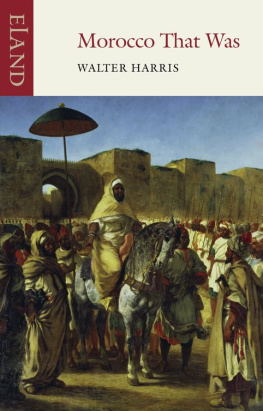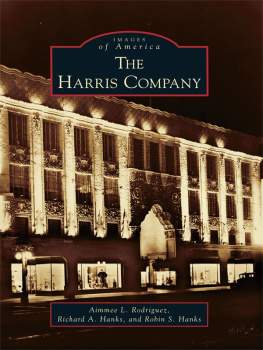M Y FIRST INTRODUCTION to the Moorish Court was in 1887, only a very few months after my arrival in Morocco, when I was invited by the British Minister, the late Sir William Kirby-Green, to accompany his special Mission to the Sultan.
Mulai Hassen was then at the zenith of his power. He was a strong Sultan, probably cruel, and certainly capable. His energy was never-failing , and he maintained order amongst his lawless tribes and stamped out the constantly occurring revolts by an almost unceasing progress through the country, accompanied by his rabble of an army. He seldom spent six months together in any of his several capitals, and the Moors had a saying, The Imperial tents are never stored.
The great labour, the enormous transport that these journeyings necessitated, is difficult to appreciate. Not only was the Sultan accompanied by his numerous ladies and all his viziers and their families and suites, but he had with him as well some ten thousand soldiers and a rabble of camp-followers. A large number of native merchants also joined the throng, for trade flowed to the region in which the Court was residing.
Some idea of the results upon the country passed through can be imagined from the fact that the very name of these expeditions in Arabic is Harka, the burning. No matter whether the tribes were in incipient rebellion, in open revolt, or in peace, they had to provide the food and fodder of this great horde, whose ravages more nearly resembled those of a flight of locusts than the passing by of human beings. Not only such legal taxation as could be extorted was collected, but the viziers and the Sultans entourage had to be bribed and paid as well, while every soldier and every camp-follower pillaged on his own account. On receiving the news of the coming of one of these Imperial expeditions, as many of the population as could, or as dared, fled to other regions; and the Sultan often passed through a deserted country, except that the Governor and tribal representatives had to be there to pour the little wealth of the countryside into the royal coffers.
Morocco was still an almost unknown country in those days. Europe paid little attention to what was passing within its boundaries, and so long as the Sultans actions didnt threaten to complicate international questions, he was allowed to go his own way. The rivalry of Great Britain and France was its outstanding feature, together with the constantly recurring quarrels and petty local wars of Spain with the tribes that surround her Presidios on the northern coast. Morocco lived its life apart. True, it was at the very gates of the Mediterranean, but it might have been in the Pacific for all the attention that it attracted. From time to time the European Governments despatched special Missions to the Sultan gigantic picnics to one or other of the capitals, during which the pending claims would, or would not, be settled; a commercial treaty was possibly discussed; eternal friendship was sworn where only hatred on one side and indifference on the other really existed, for in those days the general feelings of the Moors toward the Europeans and Christians amounted to hate.
Sir William Kirby-Greens special Mission proceeded by sea to Mazagan, conveyed by a British warship, and thence overland to Marrakesh , the Sultan having, as the custom was, sent an escort, transport, and tents to the coast for this purpose.
However rotten the state of Morocco may have been at that time, Mulai Hassens strong hand held its fabric together, and presented to the outside world a front of great dignity. The British Mission travelled amongst the tribes in perfect security, and was received with all honour and with pretended rejoicings. Compliments flowed as fast as mountain streams happy in their wording, sonorous in their utterance, and absolutely insincere.
And then, in mingled dust and sunshine, the entry into the southern capital; the threading of its narrow streets; the throng of onlookers; the almost hopeless crush of horses and mules and men; and our arrival in the great garden of olives and oranges which surrounded the kiosks of the Maimounieh Palace, in which the Mission was housed during its stay at Marrakesh.
The reception of foreign envoys by the Sultan formed a pageant of much magnificence. Only a very few years later the whole formality was changed, and the representatives of the Governments of Europe were no longer received as vassals bringing tribute. But as long as the old etiquette lasted, there could be no question about the splendour of the ceremony. It may have been derogatory, and no doubt was, for the representatives of the Great Powers of Europe to stand bareheaded in the sun while the Sultan, under a crimson parasol, remained on horseback; but no one could dispute the picturesqueness of the scene or its oriental dignity.
The great square of the palace, covering many acres, in which the reception took place, was surrounded by yellow walls, here and there pierced by gateways. At one end, above these walls, appeared the flat terraces and green-tiled roofs of the palace, at the other extremity the cypress and olive trees of the great park of the Agdal; while away to the south, towering high into the morning sunlight, rose the snow-covered peaks of the Atlas Mountains. A fitter mise en scne for a great pageant could scarcely be imagined.
The great square was lined with troops, ragged and parti-coloured, some in uniform and some out of it, and some in uniform so ragged that they were as much out of it as in it. Others, again, in brilliant costumes of every colour, evidently made and served out for the occasion. In detail much was wanting, perhaps; in general effect it was a rainbow. Into the centre of this square the British Minister and his suite were ushered by high white-robed functionaries of the Court, while close behind the little group of uniformed Europeans were piled the cases of presents sent by the British Government to His Shereefian Majesty. In fact, the whole traditional ceremony was based upon the reception of vassals and the offering of tribute.
A blast of trumpets, and the great green gates of the palace are hurled open, and a hurried throng of Court attendants, in white robes and crimson-peaked fezes, emerges. A band of shrill music pipes and drums bursts into noise. Banners and wand-bearers and spear-bearers follow, and black grooms leading horses, saddled and caparisoned in gay silks and gold embroideries, which prance and neigh at the dust and noise. Then the Sultan, a stately figure in white, on a white horse trapped in green and gold. Over his head is borne the great flat parasol of State, of crimson velvet and gold, while at his side attendants wave long white scarves to keep the flies off his sacred person. After him follow his viziers, portly gentlemen swathed in soft white hanging garments, and then more Court attendants and slaves.
As the sacred presence of the Sultan passes into the public square a great shout rends the air, and the bowing crowd cries, May God protect the life of our Lord.
As the procession approaches the group of the British Mission it divides to right and left, and the Sultan advances, accompanied only by his Chamberlain and one or two attendants, and followed by his viziers. The members of the Mission bow and salute, and the Chamberlain presents the Minister to His Majesty, who bids him welcome. Sir William Kirby-Green then read his speech, and handed his credentials to His Majesty, wrapped up in silk. The Sultan took them, holding the folds of his cloak between his sacred fingers and the infidel documents! The suite is presented, and after another word or two of welcome on the part of the Sultan, His Majesty turns his horse and retires again to the precincts of his palace, amid the cries of his people, the booming of cannon, and the shrill blast of native music.












